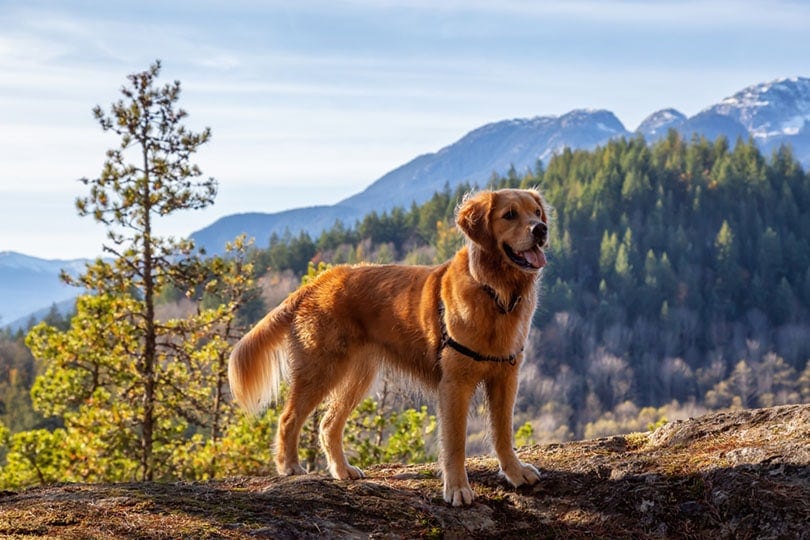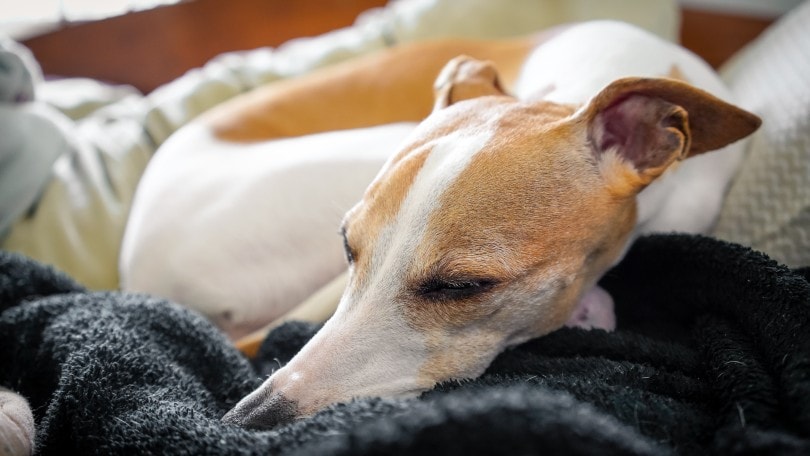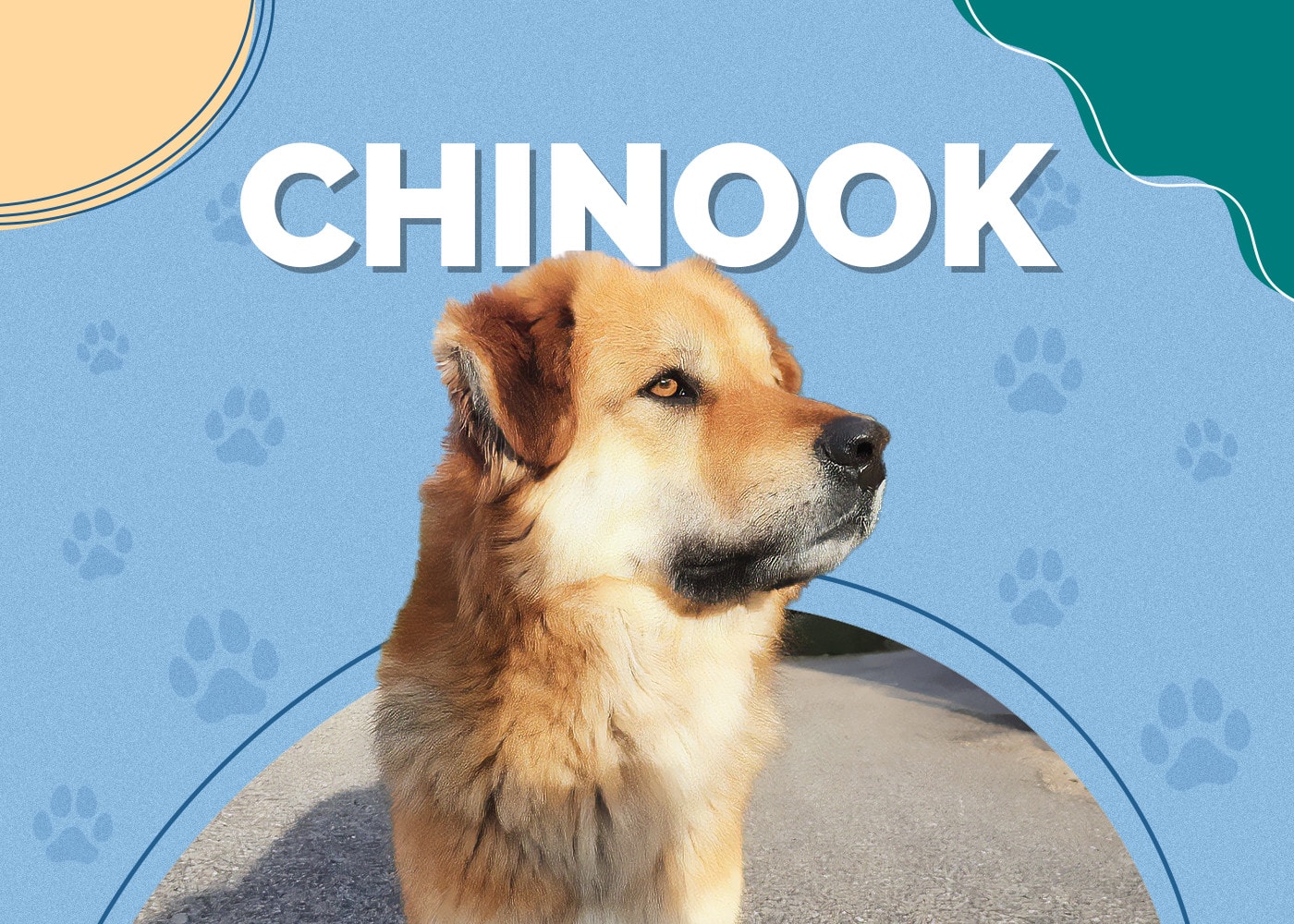How Much Do Rhodesian Ridgebacks Shed? (Shedding & Coat Care)
By Kit Copson
Updated on
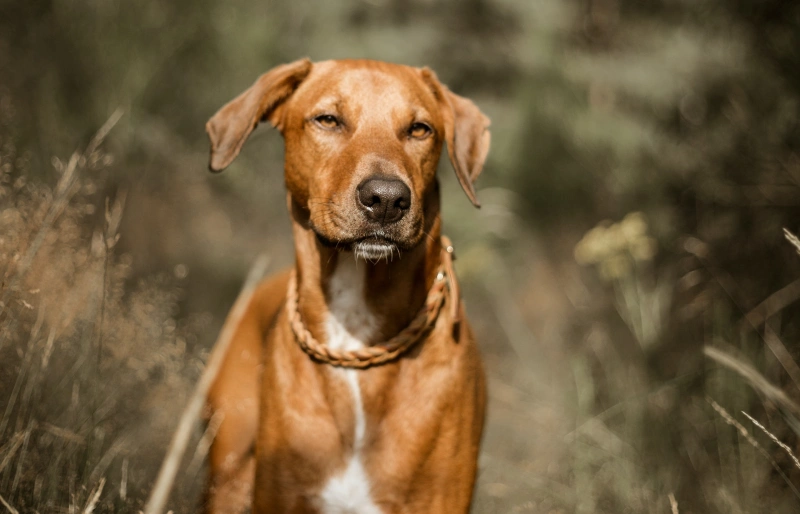
There’s a lot (quite literally) to love about the noble but friendly Rhodesian Ridgeback, though they are a very big commitment in terms of training, socialization, and general care. One of the many perks of parenting a Rhodesian Ridgeback, however, is that they don’t shed a whole lot, so don’t worry if you’re short on grooming tools—coat care is a pretty basic affair.
Read on to find out more about caring for a Rhodesian Ridgeback coat.
Rhodesian Ridgeback Coat Care
The Rhodesian Ridgeback has a short, smooth coat that sheds only moderately throughout the year. To keep the coat in good condition, you can brush it weekly with a bristle brush to get any dead hairs out and distribute the natural oils produced by the skin through it. This helps maintain that lovely glossy sheen that Rhodesian Ridgebacks are famous for.
You should only bathe a healthy Rhodesian Ridgeback now and then and whenever necessary, for example, if they get dirty. Overbathing can dry out the skin and cause itchiness and soreness. On the other hand, if your Rhodesia Ridgeback has a skin condition, your vet may prescribe more frequent bathing with a special kind of shampoo.
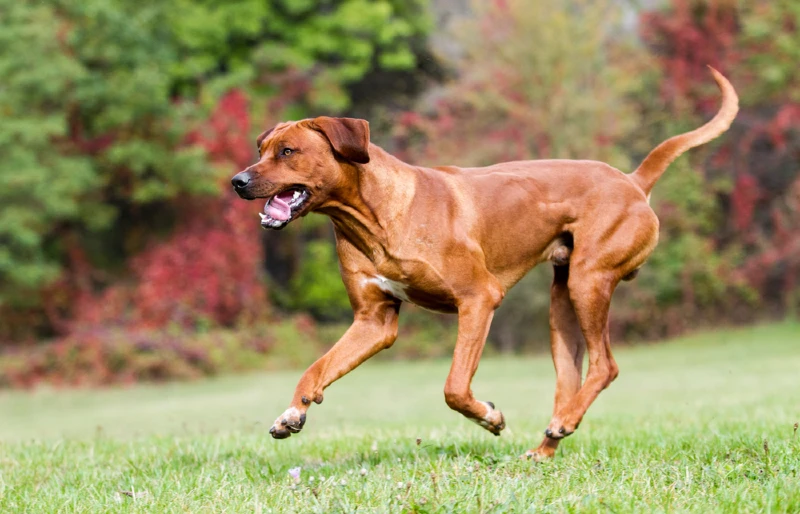
Nutrition and Your Dog’s Coat
It’s important to remember that brushing can only do so much when it comes to keeping the skin and coat in good condition. Feeding a high-quality diet is crucial, as this is how dogs get the protein, essential fatty acids, vitamins, and minerals they need to maintain healthy skin and a shiny coat.
Low-quality dog food and general malnutrition can result in nutritional deficiencies that affect the dog’s skin,1 coat, and overall health. Signs include hair loss, patchiness, scaliness, cracked skin, dryness, hair color changes, sores, and dullness of the coat. If you’re not sure which formula would be best for your Rhodesian Ridgeback, ask your vet for recommendations.
Are Rhodesian Ridgebacks Hypoallergenic?
The term “hypoallergenic” does not mean a dog won’t cause allergies, it simply means that the dog doesn’t shed as much as some other breeds, so isn’t as likely to trigger an allergic reaction. The risk of a reaction is not, however, entirely eliminated because all dogs shed.
As moderate shedders, Rhodesian Ridgebacks aren’t considered to be “hypoallergenic”. So, if you suffer from allergies and would like a low-shedding dog, breeds to consider include the Poodle, Portuguese Water Dog, Spanish Water Dog, Schnauzer, Bichon Frise, and Maltese.
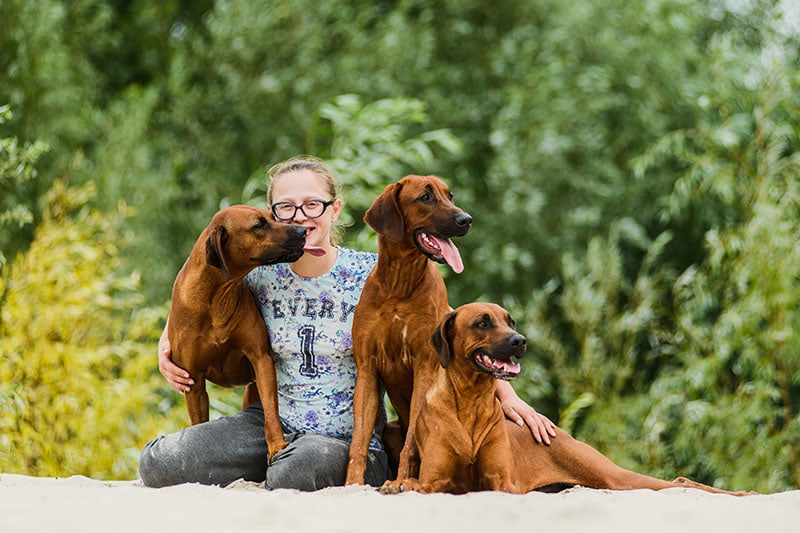
Excessive Shedding in Rhodesian Ridgebacks
If your Rhodesian Ridgeback is shedding more than it usually would, first consider the time of year. Is it spring or fall? If so, it’s normal for dogs to shed more during these seasons, so if your Rhodesian Ridgeback’s skin and coat look otherwise healthy, extra hair fall could just be the result of seasonal shedding.
However, if your Rhodesian Ridgeback is shedding excessively and/or is showing other signs that something isn’t right, like dry, flaky, itchy, or sore skin or a poor coat condition, there may be an underlying medical or environmental cause. These include:
- Parasites
- A low-quality diet
- Incorrect bathing rituals (using human shampoo, not rinsing thoroughly, etc.)
- Stress
- Allergies
- Skin infections
- Tumors
- Hormonal imbalances
- Autoimmune disorders
Final Thoughts
It’s normal for Rhodesian Ridgebacks to shed a bit throughout the year—more during shedding seasons—but, if yours is shedding more than usual or is experiencing skin issues, please arrange a checkup with your vet.
You can contribute to a healthy skin and coat condition by ensuring your Rhodesian Ridgeback eats a high-quality, balanced diet, isn’t exposed to high-stress situations, and is thoroughly brushed at least once weekly.
Featured Image Credit: Nina Quka, Pexels

